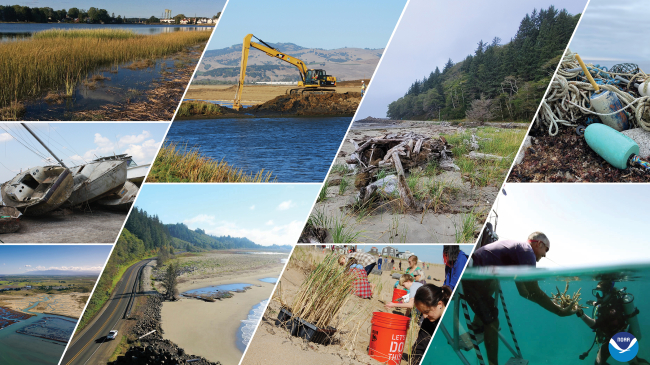
Pillar coral (Dendrogyra cylindrus) is rare in the Florida Keys. (Image credit: NOAA)
NOAA’s Coral Reef Conservation Program has awarded more than $8.3 million in grants and cooperative agreements, supporting conservation projects and scientific studies in seven U.S. states and territories, as well as international projects in the Caribbean and Micronesia. Grant award recipients are also providing more than $5.2 million in matching support for these critical projects.
“Coral reefs are responsible for injecting an estimated $3.4 billion into the U.S. economy every year,” said Secretary of Commerce Wilbur Ross. “By working with local governments and organizations to support healthy coral reefs for the future, the Department and NOAA will help ensure this economic benefit to communities across the country.”
These projects and studies will help address the three primary threats to coral reefs: a changing global climate, land-based sources of pollution, and unsustainable fishing practices. The awards also fund activities to heal and restore damaged coral reefs.
Nearly half of the funds support projects led by state and territorial resource management agencies, while other projects are run by non-governmental organizations, community groups, and academic partners. A limited number of international projects focused on Micronesia, southern Mexico and northern Central America, and the wider Caribbean region were also supported. In addition, the awards build on long-term project partnerships with the National Fish and Wildlife Foundation offsite link and The Nature Conservancy offsite link.
“Healthy, resilient coral reefs are important to our economy, and protect lives, livelihoods and valuable coastal infrastructure. Not only are coral reefs a major driver of coastal recreation and tourism in the U.S., they also provide natural coastal infrastructure that reduces wave energy and flooding during storms,” said Jennifer Koss, director of the NOAA Coral Reef Conservation Program. “We are excited to support work that, in turn, supports the future of coral reefs by reducing local threats and developing cutting-edge conservation strategies.”
Project examples include:
-
Assessment and restoration of a particular coral type (Pillar Coral Dendrogyra cylindrus) on the Florida Reef Tract;
-
Characterizing reef fish assemblage, spawning activity, and resilience in Florida after Hurricane Irma;
-
Studying how Hurricane Maria affected Puerto Rico’s coral reef;
-
Village-based planning in American Samoa to address threats posed to coral reefs by climate change;
-
Identifying how human and natural factors affect climate-driven coral bleaching in Guam.
All of the proposals submitted for funding underwent extensive and rigorous technical review before final decisions were made. For more information on the awards and grantees, visit: coralreef.noaa.gov/conservation/fundingOpps.html.
The NOAA Coral Reef Conservation Program’s mission is to protect, conserve and restore coral reef resources by maintaining healthy ecosystem function. For more information, visit coralreef.noaa.gov.
Contact:
Jerry Slaff, 240-533-0935



